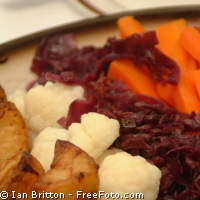EU project provides risk assessment of acrylamide in heated food
A new research area appeared overnight when the presence of acrylamide in heated food was discovered in 2002. One of the first teams to investigate the finding and its implications was the HEATOX team, funded under the EU's Sixth Framework Programme. The three-year project began in November 2003, bringing together 24 research teams from 14 countries. Most project partners are universities or research institutes, but national authorities and a European consumer organisation are also involved. When the project began, very little was known about the formation of acrylamide in cooked foods. HEATOX has increased knowledge and understanding of the phenomenon, but their findings do not make for happy reading. The team found toxicological evidence suggesting that acrylamide in food may cause cancer. Their findings also suggest that there are ways to decrease exposure to acrylamide, but not to eliminate it: laboratory experiments succeeded in reducing acrylamide levels in bread and potatoes by adjusting the oil/potato ratio in semi-industrial fryers or minimising long yeast fermentation. The HEATOX project has also found that acrylamide is not the only genotoxic compound that forms when food is heated. The team has created a database of more than 800 heat-induced compounds, of which 50 are highlighted as potential carcinogens based on their chemical structure. Future research should focus on these compounds. The presence of acrylamide in home-cooked food is minimal in comparison with industrially or restaurant-prepared foods. The team points out that advising citizens on the risks must be a national responsibility as cooking and eating habits vary considerably between countries. General guidelines would advise avoiding overcooking when baking, frying or toasting carbohydrate-rich foods. Further acrylamide intake can also be achieved by following a diet without excessive fat or calorie intake. The involvement of so many scientists from different disciplines meant that HEATOX was also able to produce intake calculations, chemical reaction models, exposure assessments, in vivo and in vitro toxicity testing, mitigation proposals to reduce intake, analytical methods for biomarkers and levels and a risk characterisation. More than 40 individual research papers have been published in international scientific journals by HEATOX scientists as a result of the project.



